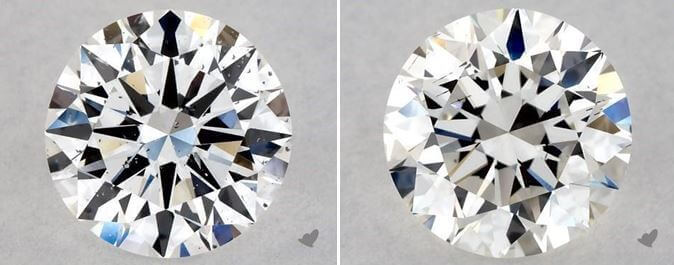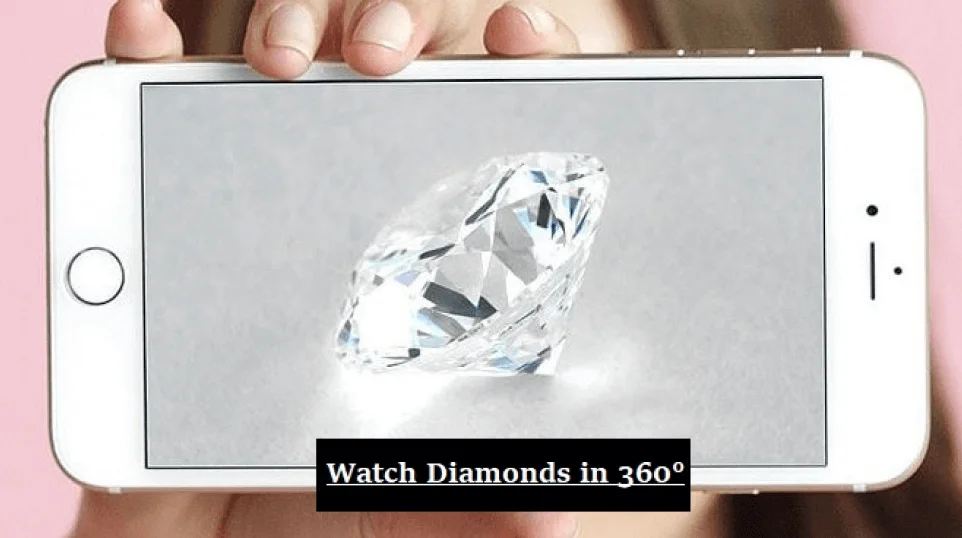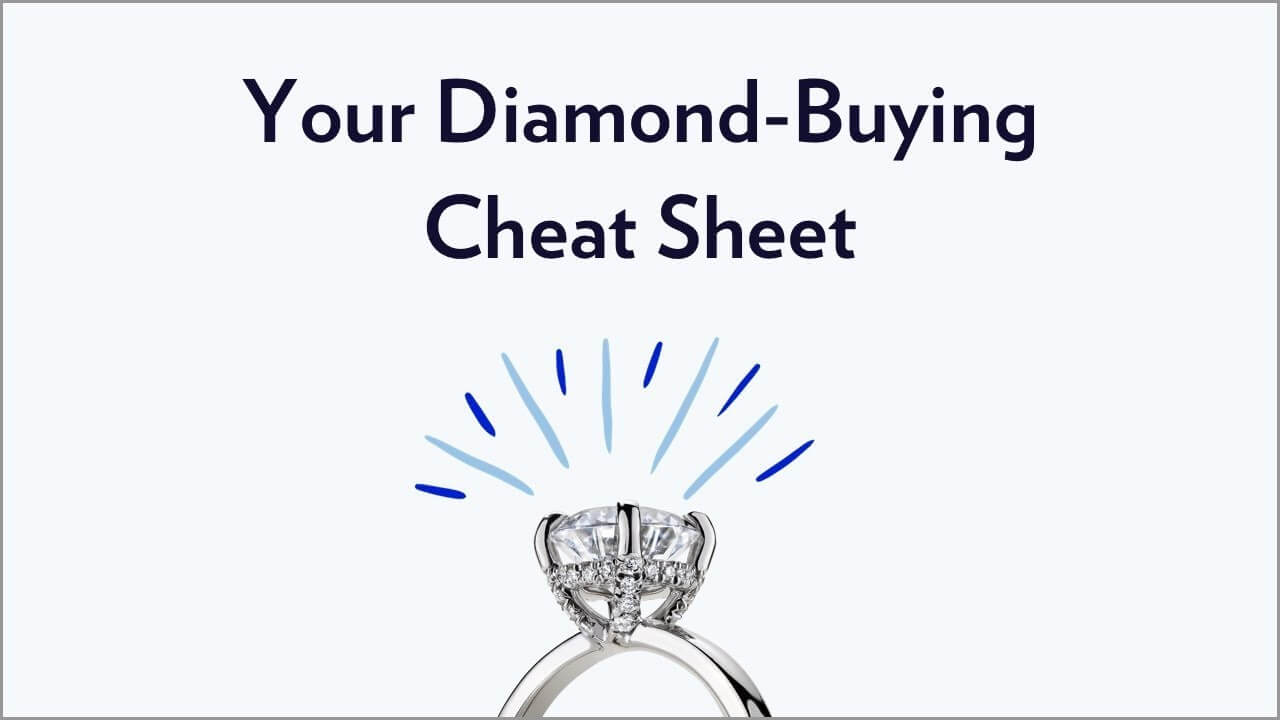Diamonds come in various shapes, sizes, colors, and clarity ratings. The specific elements influencing diamond quality are the Four Cs—Color, Cut, Carat weight, and Clarity. These elements make each piece of diamond unique, and diamond prices largely depend on them.
For instance, take a close look at the pictures below:
The first picture represents a 1.00 carat D-SI1 excellent cut round diamond, whereas the second is a 1.04 carat H-SI1 excellent cut round diamond.
To the untrained eye, these two diamonds bear a striking visual similarity. But as you can see, their descriptions are different, meaning they come with varying quality markers.
The second diamond has a higher carat weight than the first one. While the cuts are similar, we see a noticeable variance in their clarity ratings. The colors are also vividly different, and even if the two diamonds were the same color, their difference in clarity would significantly impact their overall fluorescence.
Imagine visiting a store and immediately bumping into these seemingly similar diamonds. It is worse if you find both pieces equally stunning. Would you be able to distinguish between stones of superior quality? In most cases, you would rely on what the sellers say, which is dangerous, especially if the store is only keen on profit-making.
Apart from the Four Cs, you should also understand some standard terms used in the diamond trade. For instance, we have natural and lab-grown diamonds. Natural diamonds refer to diamonds grown underneath the earth’s surface. On the other hand, lab-grown diamonds are manufactured in the labs.
The term “natural” may sound fancy, and if you are not careful, a trader could leverage that to their advantage. However, there are no fundamental differences between natural and lab-grown diamonds - contrary to popular belief, lab-grown diamonds are not fake. You may come across some stores calling them “synthetic.” But you do not need to fret because they are as real as their natural counterparts.
Indeed, lab-grown diamonds are preferable since they are prepared under controlled conditions. What may, however, bother you in the laboratories where the diamond is prepared? Therefore, you may ask yourself if the lab-grown diamond you are eyeing is certified by a certified lab. We recommend that you always insist on diamonds graded by reputable labs like the Gemological Institute of America and the American Gems Society.
2. Comparing Offers across Multiple Stores
After acquainting yourself with fundamental knowledge on diamonds, you can now proceed to compare offers. As we have already mentioned, your best bet when buying diamonds in Indiana is to do your shopping online. Hence, research the top jewelry brands on your PC depending on your resident city. Afterward, open a few tabs for each town and begin comparing the offers. For each store, there are certain things to consider.
First and foremost, does the seller offer variety? You will bump into some stores that only deal in loose diamonds. You may also come across stores that stock various forms of diamond jewelry. For a fantastic shopping experience, choose an outlet that offers both. For instance, you could buy a necklace and a loose diamond separately. Then, ask the store to mount it for you, depending on your desires.
After narrowing down your options depending on the range of diamonds a store offers, it is time to proceed to another critical consideration—grading reports. We have highlighted two reputable grading organizations, though there could be many others. Avoid stores that work with in-house grading professionals because these grading experts could be biased toward the shops they work for. Instead, insist on independent grading organizations.
As you enquire about these details, do not believe everything the sellers tell you. Verify the authenticity of a shop’s grading reports and locate a sample of such a report on the store’s website or ask their support to provide you with one. Then, click here to check for the authenticity of the report. Diamond shops that employ GIA-accredited staff are more recommended.
The next consideration should be where the store sources its diamonds. In other words, are the diamonds blood or conflict-free? Conflict-free diamonds refer to diamonds whose mining and trading activities are above board, ethically and otherwise. Such diamonds are not sold to finance armed conflicts. The opposite is conflict diamonds, also known as blood diamonds, mostly come from African countries. Examples of such countries include the DRC, Sierra Leone, Ivory Coast, Liberia, and Angola.
On the other hand, most conflict-free diamonds originate in Russia. If in doubt, always request some form of a conflict-free guarantee. One cannot overstate the need for ethical diamond sourcing.
If everything looks fine so far, investigate the shipping and return policies of the merchant. It is more convenient to shop for diamonds from a local store. But if impossible, ensure that the store you buy from ships to your location.
Lastly, proceed to compare prices and ensure you are making an apple-to-apple comparison. Out of five stores, you will always find one that offers reasonably-priced jewelry. If everything feels right, choose whether you want to order online. If the store you have narrowed your search to is local, it does not hurt to visit their physical outlets. But if they are in a distant city, you will be better off ordering online. For instance, it would be strenuous to travel from Fort Wayne to Indianapolis to buy diamonds when you can purchase the same online.
But just before you place an order, check the available payment terms. Pay-on-delivery terms are preferable. For upfront payments, ensure you complete your transactions by credit card because it is the most secure method for shopping online. Plus, it also comes in handy if you need to make purchase returns.



